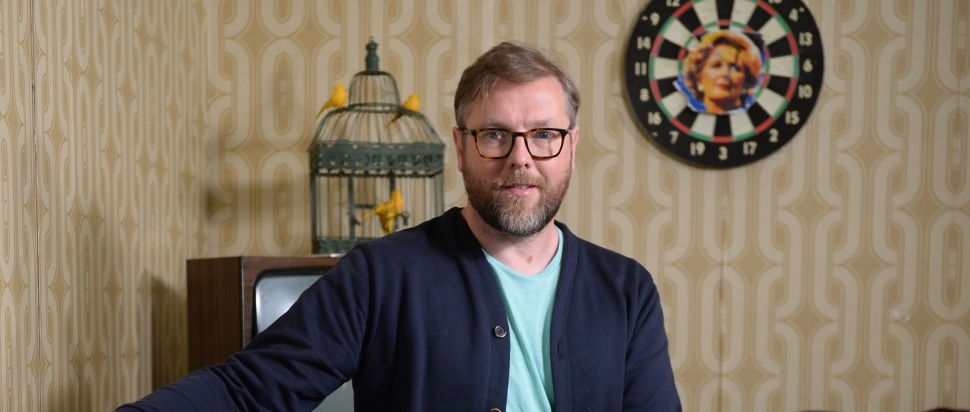Reclaiming Queer History: Damian Barr on Maggie & Me
With a National Theatre of Scotland adaptation of his memoir Maggie & Me about to hit Scottish stages, we chat with author Damian Barr
The book business can be tricky. You spend years writing your way into a memoir, for example, and the book comes out to great fanfare if you’re lucky and then it sort of disappears into the ether – and then you have to write another book. Books, of course, are eternal, but once they’ve debuted, well, that’s it – that book is going to be the same book for as long as paper lasts. Some stories, however, are evergreen – that is, they keep connecting with audiences long after they’ve had their pub day fanfare. For writer and host of The Big Scottish Book Club Damian Barr, his memoir about growing up queer during the Thatcher years is one such story, which is taking on new life and being adapted for the stage 11 years after its publication.
The memoir, Maggie & Me, is the story of a time and a place Barr had been hungry to see on bookshelves: growing up working class in Scotland in the 1980s, queer coming of age during the advent of AIDS, being a child of divorce. It’s a story about the way that the decisions of the past shape us – not just personally, not just familially, but also in how political leaders end up shaping the world for the decades that follow, especially for young people. It was vulnerable, and terrifying, Barr says, “Because I grew up being told nobody would believe me in a culture where you just don’t talk about what’s happening at home.” And at a time when Thatcher was calling AIDS a threat to national security, Barr says telling the story felt like he was “breaking a lot of ingrained rules.
“But the past is not constant,” he adds. “It’s restless. And the things that happened still happened.” Adapting the book with critically acclaimed playwright James Ley, best known for Love Song to Lavender Menace, has been something of a healing process for Barr, which he says is helping him answer some of the questions that writing the book had left him with. While the memoir is the story of young Barr in a specific place and time, Maggie & Me is the story of that man reliving his young life, giving yourself permission to tell your story, and “what that costs you, how hard that is.”
The performance comes at a time when queer stories, especially ones that harness joy despite difficult experiences, are more pertinent than ever. Last year, Scotland's Crown Office and Procurator Fiscal Service reported that rates of hate crimes against the LGBT community were the highest they've been since 2010; hostility from a more conservative government often puts funding for the arts at risk, which has become increasingly precarious amidst a growing echo chamber of political representatives who seek to exploit animosity towards queer and trans rights for internet clout and party power. “We see a very international, organised, well-funded attempt to unpack many of the legislative advances that our community has worked hard for with allies in the past,” says Barr.
The appetite for queer theatre in Scotland seems to be doing well in a lot of ways: Ley just had a string of three award-winning productions in a row prior to working with Barr, with two of them touring internationally, and Maggie & Me’s debut at Glasgow's Tron Theatre sold out straight away. “That’s something every now and then I have to remind myself,” says Barr. “The National Theatre is making this play, and that says something about the nation.” At its core, the excitement for Maggie & Me speaks to a community of people that are hungry to see their stories reflected back to them, in part to hold space for narratives that are sometimes quite painful and difficult and how we can hold joy in the centre of that.
Maggie & Me, touring Scotland, 7 May-15 Jun
nationaltheatrescotland.com/events/maggie-me
